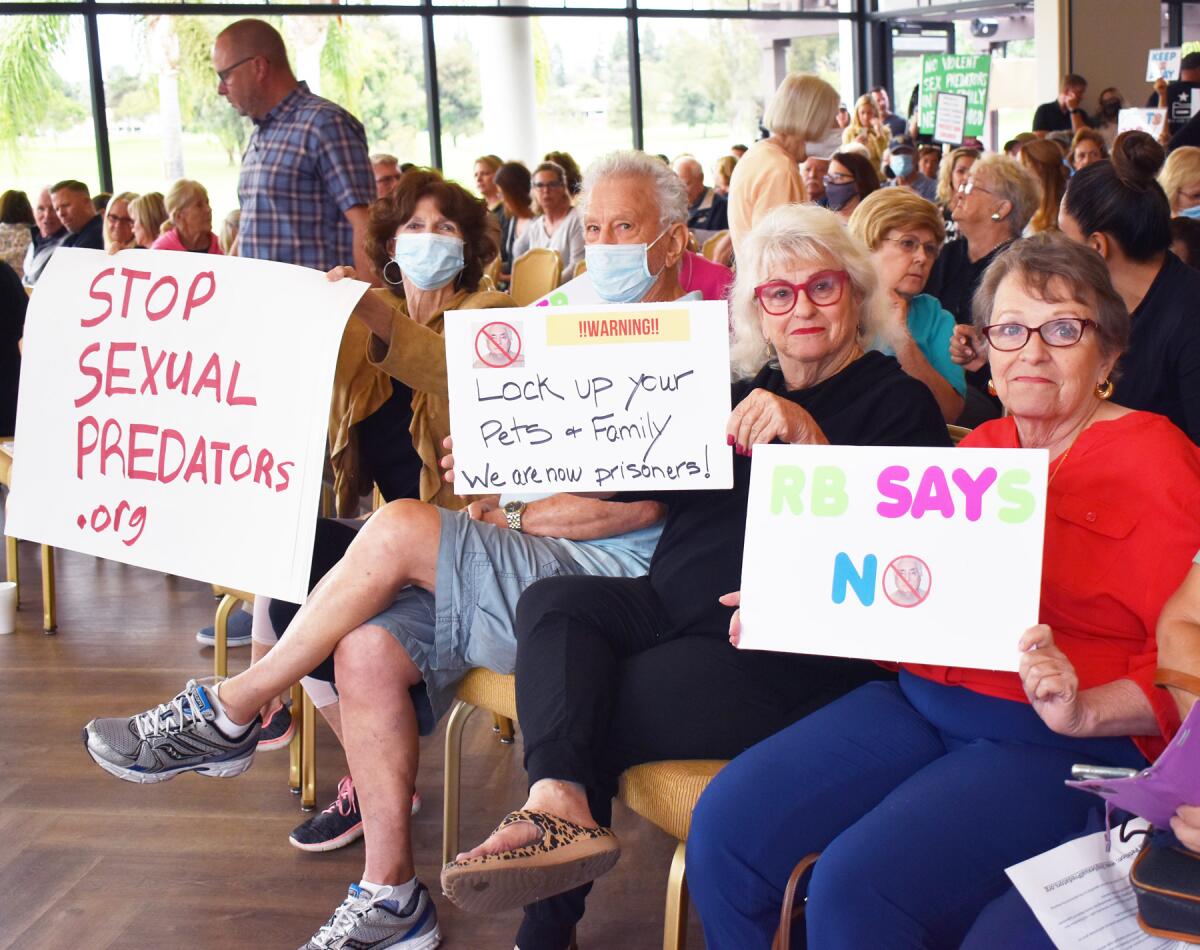Newsom signs bill to track certain sexually violent offenders through GPS systems

- Share via
SACRAMENTO — Law enforcement groups and criminal justice reformers are at odds over a bill signed Tuesday by Gov. Gavin Newsom that will allow the state to keep tabs on certain “sexually violent predators” through the Global Positioning System.
Lawmakers passed AB 1641 with an overwhelming majority in both the Assembly and Senate. Authored by Assemblymember Brian Maienschein (D-San Diego), the bill will require such predators to be monitored while on a conditional release program from rehabilitation programs.
Both the American Civil Liberties Union California Action and California Attorneys for Criminal Justice opposed the legislation.
“Persons who are granted conditional release under the Sexually Violent Predator Act have been determined by the court, based upon expert opinion, not to pose a danger to the public,” the ACLU wrote in a statement.
The group called the GPS tracking approach a “questionable practice,” arguing that convicted sexual offenders who are granted conditional release have already served time in prison and receive treatment at Coalinga State Hospital.
Built in 2005, the hospital treats sexually violent predators who suffer from mental disorders that prevent them from being released back into society until they undergo a therapy program. The hospital has a goal of rehabilitating and releasing former inmates, but few opt for the therapy, which has raised questions about its $250-million budget.
The state undertakes annual assessments of these individuals to determine whether they can be placed in a step-down program to transition back to their communities. Critics say a blanket requirement for GPS monitoring is arbitrary and an invasion of privacy.
“It’s a one-size-fits-all approach to a wide range of people and situations,” wrote Stephen Munkelt, executive director of California Attorneys for Criminal Justice, adding that placing a tracking device on individuals who have gone through a rehabilitation system creates psychological pressure that they are being watched.
In a statement in support of the bill, the Peace Officers Research Assn. of California said it would “clarify some ambiguities in the law and ensure the public’s safety.”
Similarly, the California State Sheriffs’ Assn. supported the bill, saying it is in the “best interest” of the public.
“Sexually violent predators have proven themselves to be among some of the most dangerous criminals,” said Assemblymember Brian Maienschein. “When Rancho Bernardo was selected as the proposed placement location of an SVP [sexually violent predator] last year, I immediately began researching the conditional release process... My bill will ensure that law enforcement are provided with an additional tool to help protect our communities from these criminals.”
Newsom on Tuesday signed 36 other bills and vetoed two, according to a press release from his office.
More to Read
Sign up for Essential California
The most important California stories and recommendations in your inbox every morning.
You may occasionally receive promotional content from the Los Angeles Times.











